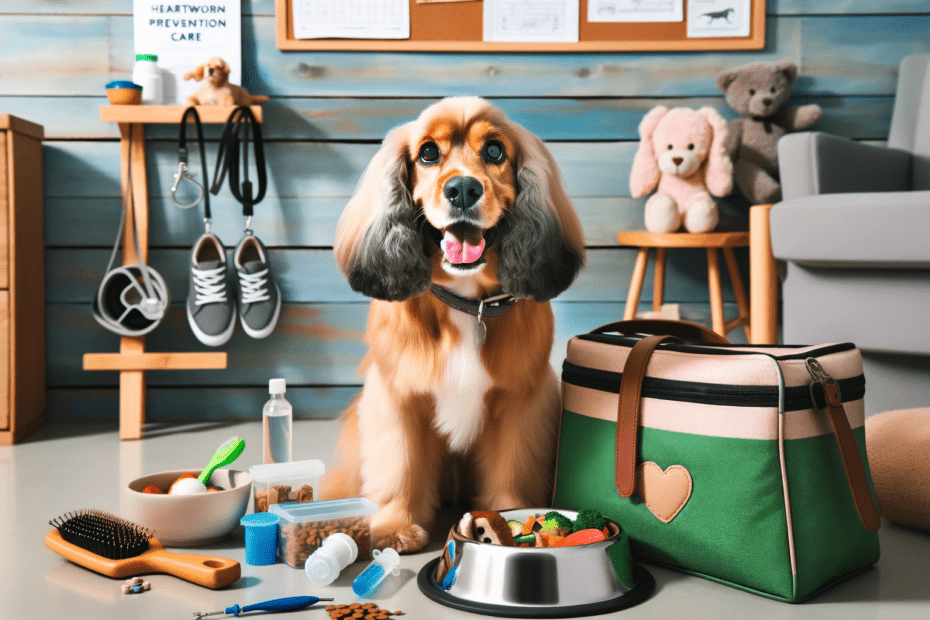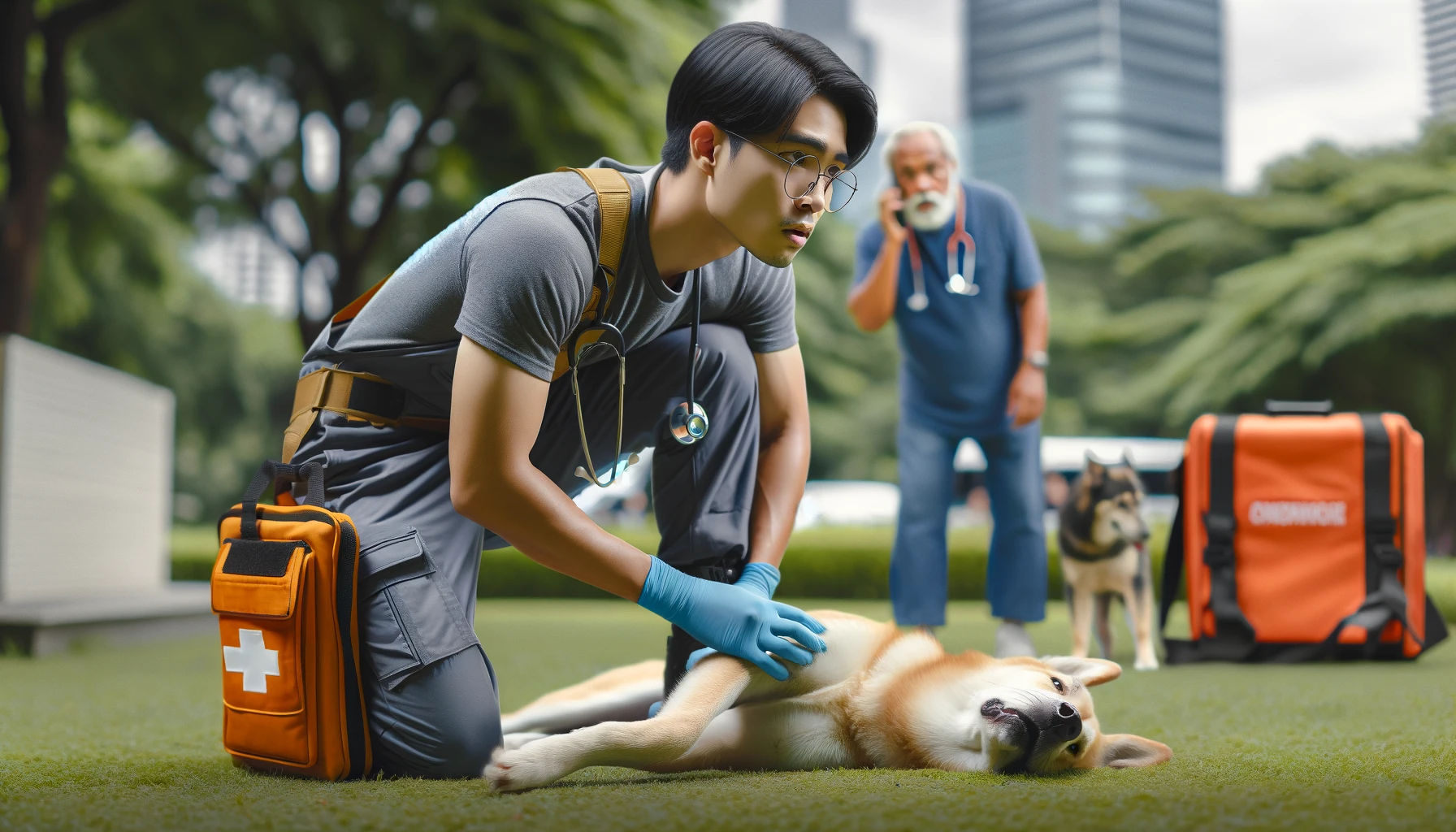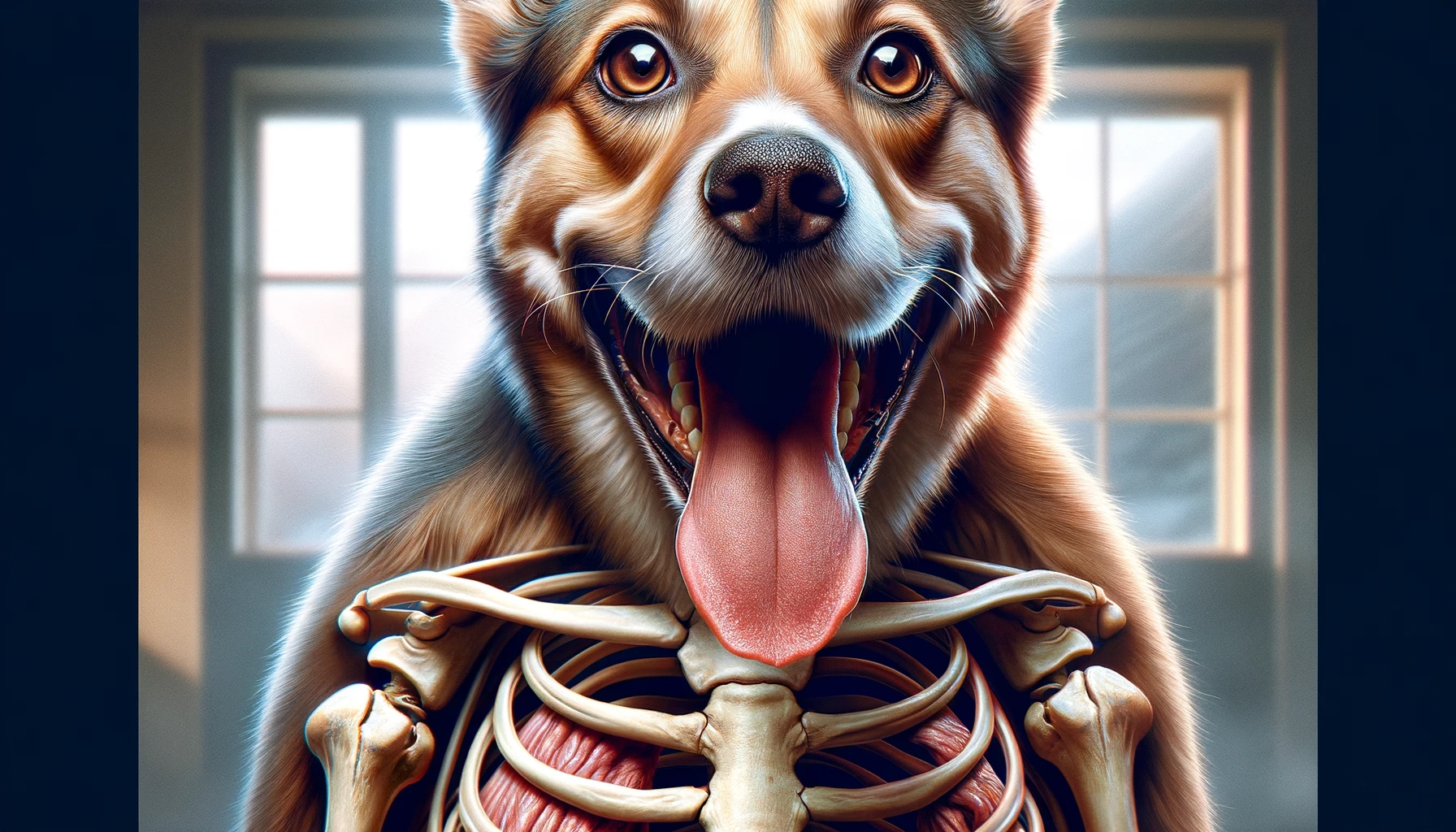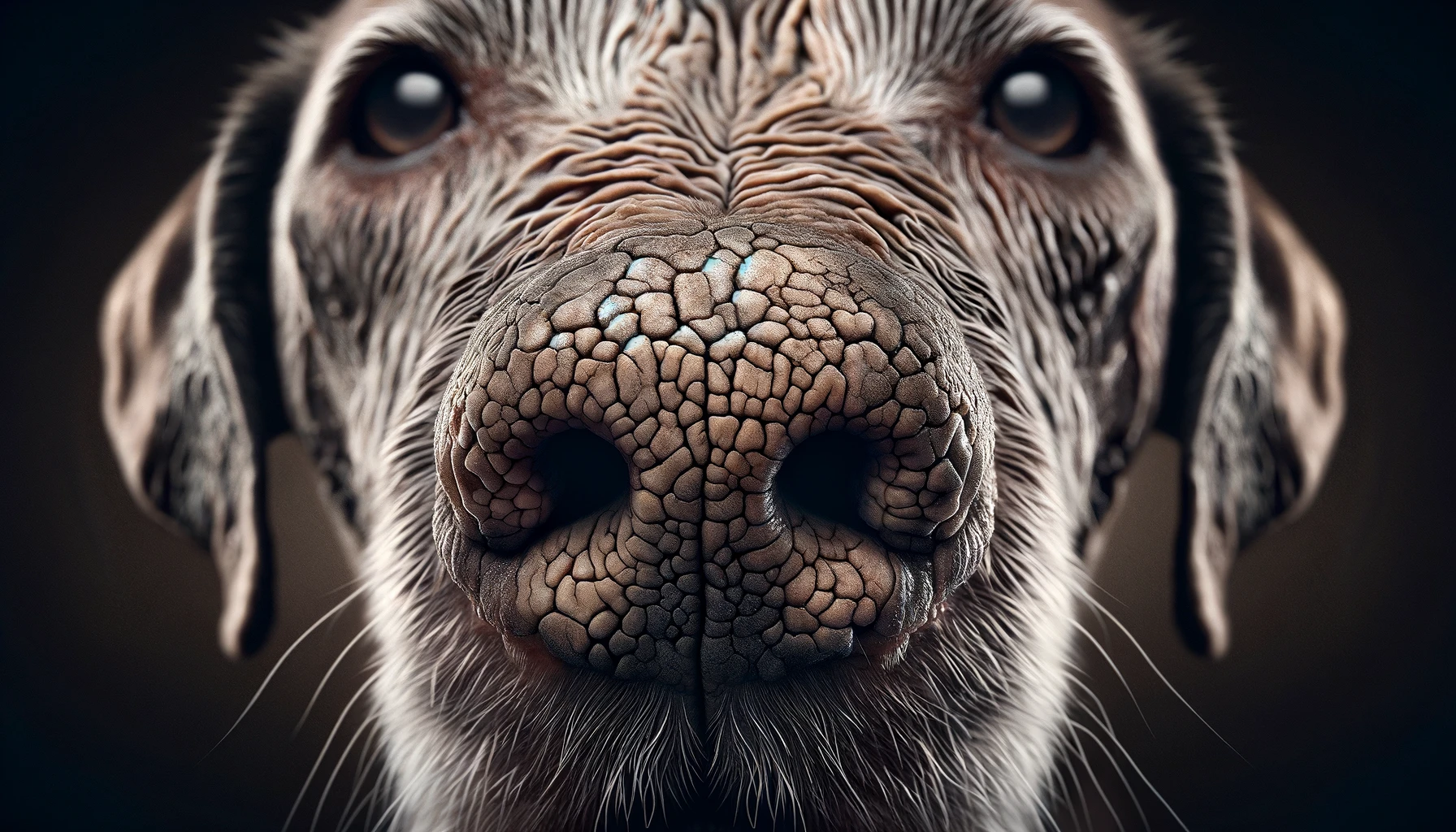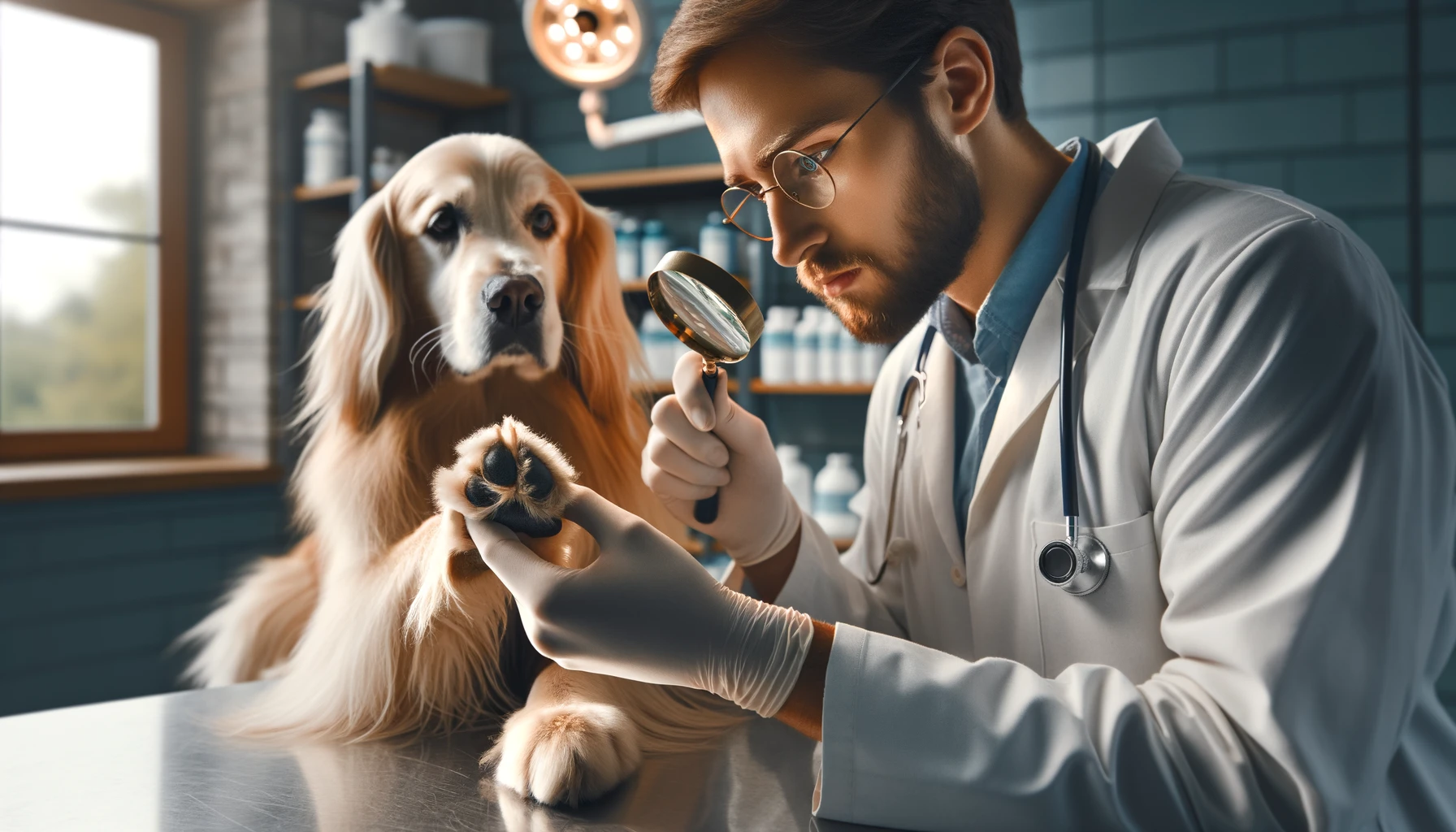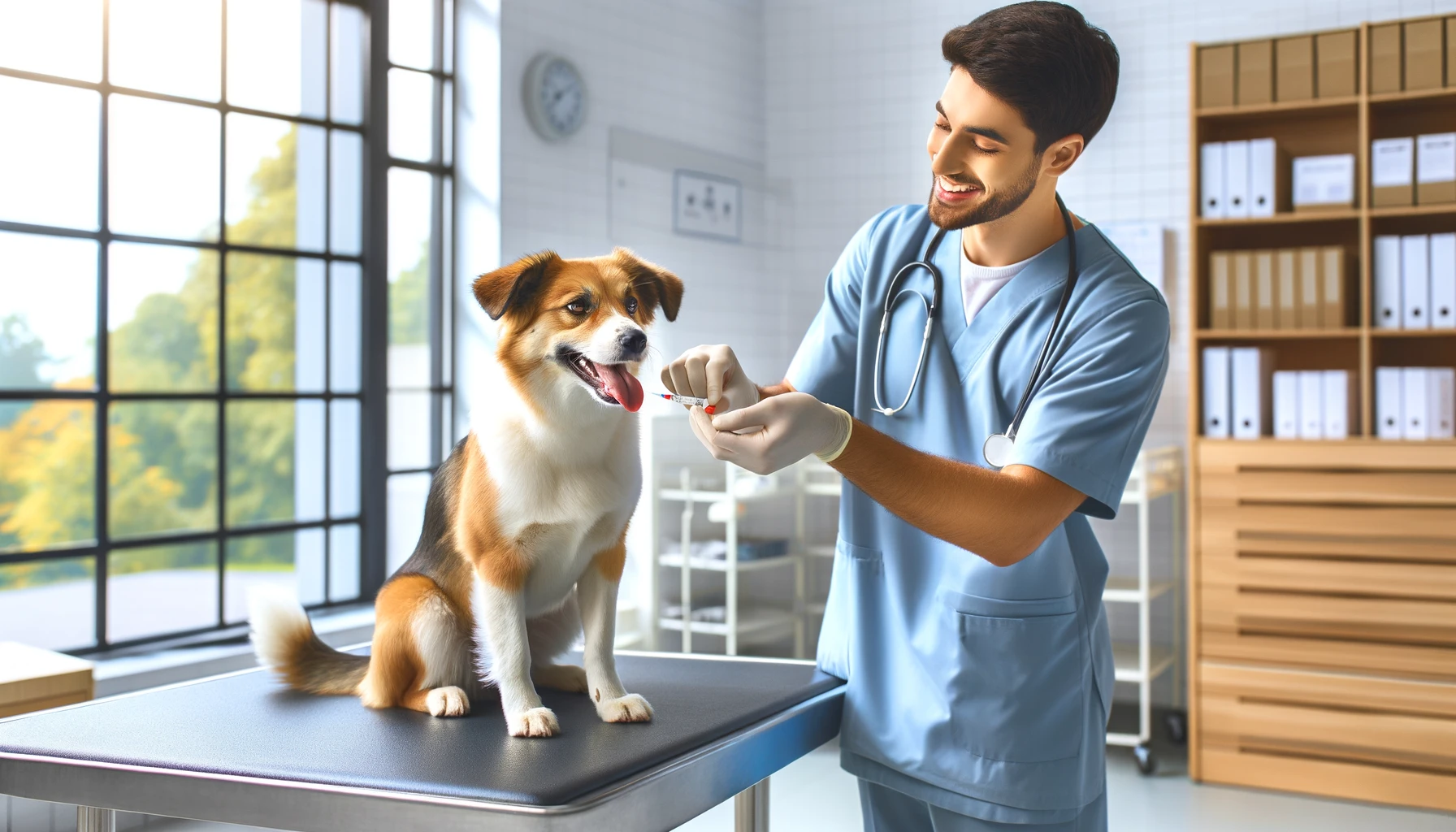Are you looking for ways to keep your furry friend healthy and happy? Look no further! In this article, we will discuss eight essential preventive measures for your dog's health.
From regular vet check-ups to proper nutrition and exercise, we've got you covered. Don't forget about vaccinations, dental care, parasite prevention, socialization, and grooming.
By following these preventive measures, you can ensure your dog's well-being and give them the best life possible.
Key Takeaways
- Schedule annual veterinary check-ups for thorough examinations and preventive measures.
- Choose high-quality dog food and maintain a balanced diet to prevent obesity and associated health problems.
- Incorporate regular exercise into the routine tailored to the dog's age, breed, and overall health.
- Practice regular dental care and oral hygiene to prevent dental diseases and systemic infections.
Regular Veterinary Check-Ups
Schedule annual veterinary check-ups to ensure your dog's ongoing health and well-being. Regular visits to the veterinarian are crucial for maintaining your dog's overall health and catching any potential issues before they become serious. During these check-ups, your veterinarian will conduct a thorough examination to assess your dog's physical condition and identify any underlying health concerns. They'll also provide necessary vaccinations and perform preventative treatments to protect against common diseases.
In addition to the general health assessment, veterinary check-ups are an excellent opportunity to discuss your dog's nutrition and weight management. Many veterinarians offer nutrition consultations to help you understand your dog's dietary needs and make appropriate choices to maintain their ideal weight. A healthy diet and proper weight management are essential for preventing obesity and associated health problems in dogs.
Regular veterinary check-ups not only ensure your dog's ongoing health but also allow you to address any concerns or questions you may have about their well-being. By staying proactive and seeking professional guidance, you can provide your furry companion with the best possible care and help them lead a long and happy life.
Proper Nutrition and Balanced Diet
To maintain your dog's ongoing health and well-being, it's important to consistently provide them with a proper nutrition and balanced diet. A balanced nutrition is essential to meet your dog's dietary requirements and ensure that they receive all the necessary nutrients for optimal health.
Here are three key points to consider when it comes to your dog's diet:
- Quality of food: Choose high-quality dog food that contains a balanced blend of proteins, carbohydrates, fats, vitamins, and minerals. Look for products that are specifically formulated for your dog's age, size, and breed to meet their unique nutritional needs.
- Portion control: It's crucial to feed your dog the right amount of food based on their size, activity level, and age. Overfeeding can lead to obesity, while underfeeding can result in malnutrition. Consult your veterinarian to determine the appropriate portion size for your dog.
- Avoid table scraps: While it may be tempting to share your food with your furry friend, it's important to avoid feeding them table scraps. Human food can be high in salt, sugar, and unhealthy fats, which can be harmful to dogs. Stick to their regular dog food to ensure a balanced diet.
Regular Exercise and Physical Activity
Make sure you incorporate regular exercise and physical activity into your dog's routine. Just like humans, dogs need regular exercise to maintain good health and overall well-being. Regular exercise not only helps to keep your dog physically fit, but it also provides mental stimulation and helps to prevent behavioral problems. Canine fitness is essential for a healthy and happy dog.
When it comes to exercise routines, there are several options to choose from. Daily walks are a great way to start. Aim for at least 30 minutes of brisk walking every day. This will help to burn off excess energy and keep your dog's weight in check. You can also incorporate other activities such as playing fetch, going for a swim, or engaging in interactive games like tug-of-war or hide-and-seek.
It's important to tailor your dog's exercise routine to their age, breed, and overall health. If you have a high-energy breed, they may require more intense exercise sessions or activities such as agility training. On the other hand, older dogs or those with health issues may need low-impact exercises like gentle walks or swimming.
Remember to always consult with your veterinarian before starting any new exercise routine, especially if your dog has any underlying health conditions. They can provide guidance on the appropriate level of exercise and any precautions you need to take.
Incorporating regular exercise and physical activity into your dog's routine is essential for their overall health and well-being. It not only keeps them physically fit but also provides mental stimulation. So, make sure to prioritize your dog's exercise needs and create an exercise routine that suits their age, breed, and health condition.
Vaccinations and Preventive Medications
Ensure your dog receives necessary vaccinations and preventive medications for optimal health. Here are three important reasons why:
- Disease Prevention: Vaccines protect your furry friend from dangerous diseases such as rabies, parvovirus, distemper, and hepatitis. These diseases can be fatal, so it's crucial to keep your dog's vaccinations up to date to prevent them from becoming sick.
- Parasite Control: Preventive medications help keep your dog safe from parasites like fleas, ticks, and heartworms. These pests can cause discomfort, transmit diseases, and even lead to severe health issues. Regular use of preventive medications will ensure your dog remains parasite-free and healthy.
- Public Health: Vaccinating your dog not only protects their health but also contributes to public health. Some diseases that affect dogs can also infect humans, such as rabies. By vaccinating your dog, you're helping prevent the spread of these diseases to both animals and people.
Remember to consult with your veterinarian to determine the appropriate vaccination schedule and preventive medications for your dog. By staying proactive in these preventive measures, you're taking important steps to safeguard your dog's well-being and the well-being of those around them.
Dental Care and Oral Hygiene
To keep your dog's teeth healthy and prevent dental issues, there are a few important points to consider.
First, regular brushing can greatly benefit your dog's oral hygiene by removing plaque and preventing tartar buildup.
Additionally, providing your dog with appropriate chew toys can help clean their teeth and promote good oral health.
Brushing and Chewing Benefits
Taking care of your dog's dental health is crucial for their overall well-being. Proper brushing techniques and the use of dental chews can provide several benefits.
Here are three reasons why brushing and chewing are essential for your dog's oral hygiene:
- Preventing plaque and tartar buildup: Regular brushing helps remove food particles and bacteria that can lead to plaque and tartar formation. Dental chews also aid in reducing plaque by mechanically scrubbing the teeth.
- Freshening breath: Brushing helps eliminate bad breath by removing odor-causing bacteria from the mouth. Dental chews can also help freshen breath by reducing plaque and tartar buildup.
- Promoting gum health: Brushing stimulates the gums and improves blood circulation, which can prevent gum disease. Chewing on dental chews can also help strengthen the gums and remove debris.
Tooth Decay Prevention Tips
Now let's delve into how you can prevent tooth decay in your dog through proper dental care and oral hygiene.
Tooth decay can lead to pain and discomfort for your furry friend, so it's important to take preventive measures. One of the most effective tooth decay prevention techniques is regular brushing. Brush your dog's teeth at least two to three times a week using a dog-friendly toothbrush and toothpaste.
Additionally, provide your dog with dental chews or toys that promote chewing, as this can help remove plaque and tartar buildup.
It's also crucial to schedule regular dental check-ups with your veterinarian for professional dental cleaning and assessment.
Parasite Prevention and Control
One of the most effective ways for you to protect your dog's health is by regularly administering preventative measures for parasite prevention and control. Parasites, such as fleas and ticks, can cause a range of health issues for your furry friend. To ensure their well-being, here are three essential preventative measures you should take:
- Use flea and tick control products: These products come in various forms, including spot-on treatments, oral medications, and collars. They work by killing and repelling fleas and ticks, preventing infestations and reducing the risk of diseases transmitted by these parasites.
- Keep your dog's environment clean: Regularly clean and vacuum your home, as well as your dog's bedding, to eliminate any fleas or ticks hiding in the environment. Washing your dog's bedding with hot water can help kill any existing parasites.
- Perform regular checks: Check your dog's fur and skin for any signs of fleas or ticks. Look out for excessive scratching, redness, or the presence of tiny parasites on their skin. Early detection is crucial in preventing infestations and addressing any potential health issues promptly.
By following these parasite prevention methods and implementing flea and tick control measures, you can significantly reduce the risk of your dog developing health problems associated with these pesky parasites.
Your dog will thank you for keeping them safe and healthy.
Socialization and Mental Stimulation
To ensure your dog's socialization and mental stimulation, consider arranging playdates with other dogs in your community. These interactions can help your dog develop important social skills and build positive relationships with other animals.
Additionally, providing interactive toys can keep your dog mentally engaged and prevent boredom, which can lead to destructive behaviors.
Playdates for Socialization
You can enhance your dog's socialization and mental stimulation by organizing playdates with other dogs. Playdates provide an opportunity for your furry friend to interact with other dogs in a controlled and supervised environment. Here are three reasons why playdates are beneficial for your dog:
- Socialization: Playdates allow your dog to develop social skills and learn how to properly interact with other dogs. This helps prevent behavioral issues that can arise from a lack of socialization.
- Mental Stimulation: Interacting with other dogs during playdates provides mental stimulation for your dog. It keeps their minds active and engaged, preventing boredom and destructive behavior.
- Exercise: Playdates provide a chance for your dog to burn off energy and stay physically fit. Instead of just walking or running, they get to engage in active play with their canine pals.
Consider organizing playdates at dog parks or enrolling your dog in training classes that offer supervised play sessions. These experiences will greatly benefit your dog's overall well-being.
Interactive Toys for Stimulation
Enhancing your dog's socialization and mental stimulation can be achieved through the use of interactive toys. These toys are designed to engage your dog's senses and provide mental stimulation, keeping them entertained and mentally sharp.
Interactive puzzle toys, for example, are a great way to challenge your dog's problem-solving skills. These toys often require your dog to figure out how to retrieve treats or toys hidden inside, stimulating their mind and encouraging them to think and problem-solve.
Additionally, interactive toys can also serve as training aids, helping to reinforce positive behaviors and provide mental stimulation during training sessions.
Regular Grooming and Hygiene Maintenance
Regular grooming and hygiene maintenance plays a crucial role in promoting your dog's overall health and well-being. Taking care of your dog's cleanliness not only keeps them looking and smelling good but also helps prevent various health issues. Here are three essential grooming and hygiene practices to keep your furry friend in optimal condition:
- Regular dog bathing: Giving your dog a bath helps remove dirt, grime, and parasites from their fur, keeping their skin clean and preventing infections. Use a gentle dog shampoo and ensure you rinse thoroughly to avoid skin irritation. The frequency of bathing depends on your dog's breed and lifestyle, but generally, once every 4-6 weeks is sufficient.
- Ear cleaning: Regularly cleaning your dog's ears is crucial in preventing ear infections and discomfort. Use a dog ear cleaning solution and cotton balls to gently wipe away any dirt or wax buildup. Avoid using cotton swabs, as they can push debris further into the ear canal and potentially damage the eardrum. If you notice any redness, swelling, or a foul odor, consult your veterinarian.
- Nail trimming: Overgrown nails can cause pain, discomfort, and difficulty in walking for your dog. Regular nail trimming is necessary to prevent nails from becoming too long. Use a dog nail clipper or grinder and be careful not to cut into the quick, which is a sensitive area inside the nail. If you're unsure or uncomfortable with trimming your dog's nails, consider seeking professional help from a groomer or veterinarian.
Frequently Asked Questions
How Often Should I Take My Dog for Regular Veterinary Check-Ups?
You should take your dog for regular veterinary check-ups at least once a year. These check-ups are important for early detection and prevention of any potential health issues. Make sure to choose the right veterinarian for your furry friend.
What Are the Signs That My Dog May Be Lacking Proper Nutrition and a Balanced Diet?
If your dog is lacking proper nutrition and a balanced diet, there may be signs of malnutrition. It's important to ensure your dog's diet is well-balanced to maintain their overall health and well-being.
Can You Recommend Some Fun and Engaging Ways to Provide Regular Exercise and Physical Activity for My Dog?
To provide regular exercise and physical activity for your dog, try incorporating fun activities and exercise games into their routine. This will keep them engaged and active, ensuring their overall health and well-being.
Are There Any Potential Side Effects or Risks Associated With Vaccinations and Preventive Medications for Dogs?
When it comes to vaccinations and preventive medications for your dog, it's important to be aware of potential side effects and risks. It's best to consult with your veterinarian to understand the specific concerns associated with these treatments.
What Are Some Effective Strategies for Maintaining My Dog's Dental Care and Oral Hygiene at Home?
To maintain your dog's dental care and oral hygiene at home, effective strategies include regular brushing with dog-specific toothpaste, providing dental treats or toys, and scheduling professional cleanings as recommended by your veterinarian.
Conclusion
In conclusion, taking preventive measures for your dog's health is essential to ensure their overall well-being.
Regular veterinary check-ups, proper nutrition, exercise, vaccinations, dental care, parasite prevention, socialization, and grooming are all crucial aspects of maintaining a healthy and happy dog.
By following these preventive measures, you can help your dog live a long and fulfilling life.
Remember, prevention is always better than cure when it comes to your furry friend's health.
